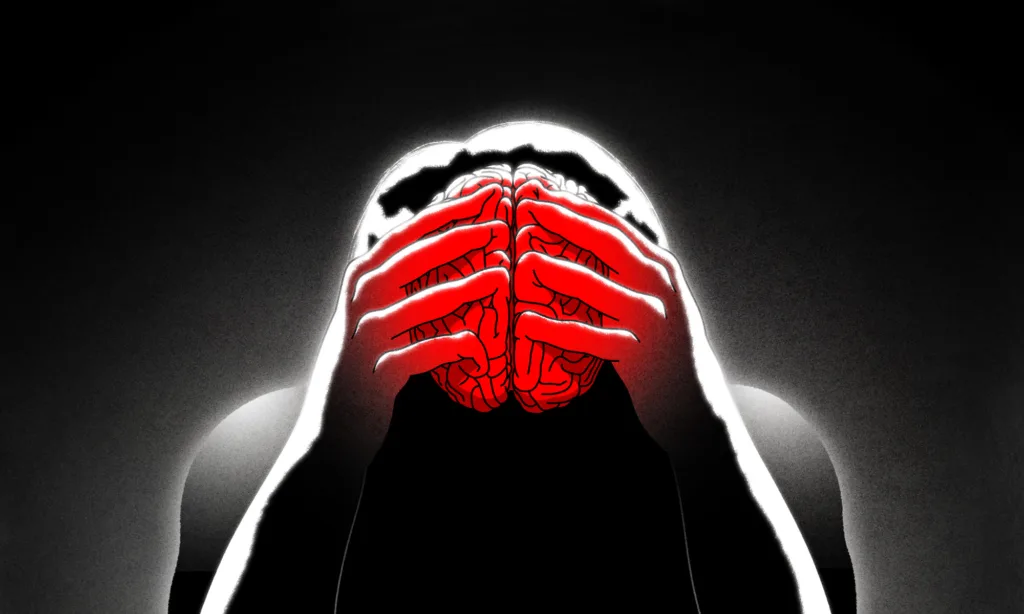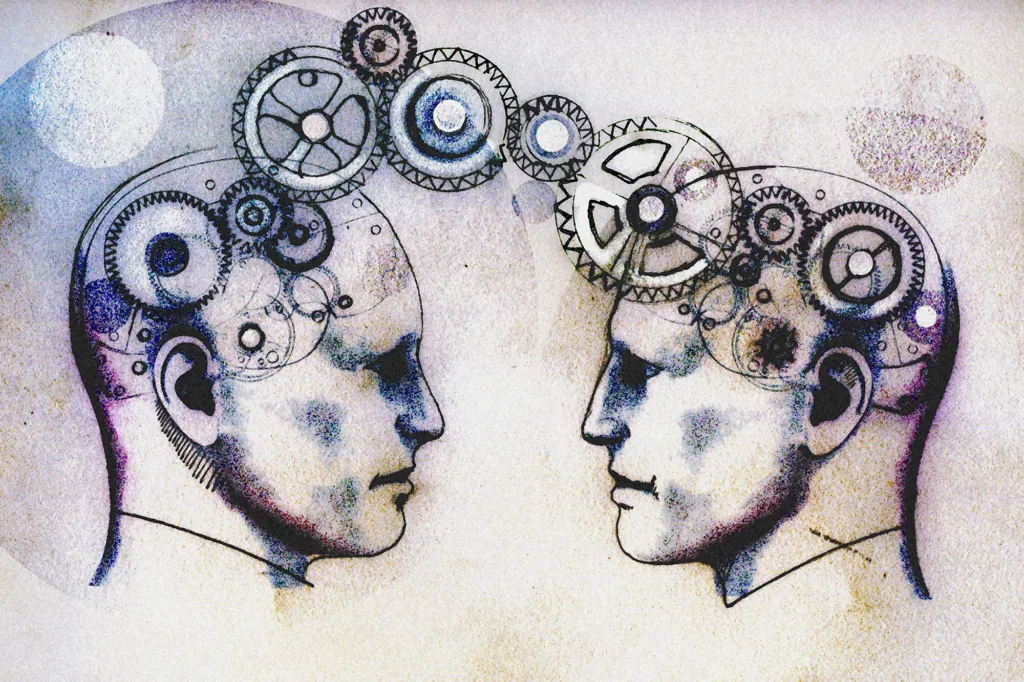Clinically insane is a term used to describe someone who is not of sound mind and has a mental disorder that impairs their ability to think and make rational decisions. People who are clinically insane often suffer from severe mental illnesses such as schizophrenia, bipolar disorder, and major depressive disorder.
It’s important to understand that being clinically insane does not necessarily mean that a person is dangerous or violent. In fact, many people with mental illness are able to function normally in society with the proper treatment and support. However, it’s also important to recognize that some people with severe mental illness may pose a danger to themseles or those around them.
The symptoms of clinical insanity vary depending on the individual’s diagnosis but can include hallucinations, delusions, disorganized thoughts or behavior, difficulty concentrating, poor impulse control, erratic emotions, and changes in sleeping patterns or appetite. It’s important to note that these symptoms alone may not be enough to diagnose someone as clinically insane; they must also be accompanied by an inability to perform daily activities such as working or caring for oneself.
If you believe someone you know may be clinically insane it’s important to seek help right away. Mental health professionals like psychiatrists and psychologists are trained in diagnosing and treating mental illness so they can best determine the cause of your loved one’s symptoms and provide them with the most effective treatment plan possible. Treatment plans usually involve a combination of psychotherapy, medication management, lifestyle changes (such as better diet and exercise), and social support from family members and friends.
In some cases where symptoms become too severe or dangerous for an individual to manage on their own, involuntary hospitalization may be necessary for their safety or the safety of those around them. In other cases where an individual poses no immediate threat of harm to themselves or anyone else, court-ordered outpatient treatment may be recommended instead.
Mental illness is nothing to be ashamed of; it affects millions of people worldwide each year regardless of age, gender identity or race. If you suspect someone you know may be clinically insane please don’t hesitate to seek help right away — your loved one deserves the best care available so they can get back on track toward a healthy life!
Exploring the Concept of Clinical Insanity
Clinically insane is not a medical diagnosis but is a legal term used in the United States. It originates from its use in common law and is used to describe soeone who has been found to be legally incapable of understanding the consequences of their actions due to mental illness. In other words, a person may be considered clinically insane if they have been declared legally incompetent because of mental illness, such as psychosis or dementia.
In medicine, insanity is not considered a diagnosis, but it may be used to describe certain mental illnesses or symptoms. For example, psychosis is sometimes referred to as “clinical insanity” because it can impair someone’s ability to distinguish between reality and fantasy. Similarly, dementia can also be described as “clinically insane” due to its effects on memory and cognition.
In conclusion, while the term “clinically insane” is not an official medical diagnosis, it can be used to describe certain mental health conditions or behaviors that are associated with the legal definition of insanity.

The Causes of Clinical Insanity
Clinical insanity is a term used to describe a mental disorder that affects a person’s thoughts, feelings, and behaviors. It is caused by multiple factors, including biological, psychological, and environmental influences. Biological factors include genetic predisposition, chemical imbalances in the brain, hormonal chanes during puberty and pregnancy, chronic medical conditions such as diabetes or HIV/AIDS, and substance abuse. Psychological factors include childhood trauma or abuse, severe stress or depression, and cognitive distortions stemming from incorrect perceptions of reality. Environmental factors may include poverty or living in an unstable social environment with limited access to resources or support. All these factors can contribute to the development of clinical insanity in an individual.
Diagnosing Clinical Insanity
Clinical insanity is a complex mental health condition that can be difficult to diagnose. Some of the key signs and symptoms of clinical insanity include disorganized speech, delusions or hallucinations, difficulty with concentration and decision-making, changes in behavior or mood, social withdrawal, and increased risk of self-harm. If you are concerned that someone may be clinically insane, it is important to seek professional medical help as soon as possible to ensure that the person receives proper treatment. It is also important to understand that clinical insanity is a medical diagnosis whih should only be made by qualified mental health professionals.
Treatment of the Clinically Insane
Clinically insane individuals are treated differently than those who are found guilty of a criminal offense. Instead of receiving a jail or prison sentence, they will typically be committed to a state mental hospital for further evaluation and treatment. This can include both inpatient and outpatient services, depending on the severity of the mental illness. At the mental hospital, doctors will assess the individual’s condition and create an individualized treatment plan that may include medications, therapy, lifestyle changes, social skills training, and more. The goal is to provide necessary treatment to help improve their quality of life and manage their condition more effectively so they can live as independently as possible.
The Relationship Between Depression and Insanity
No, depression is not a form of insanity. Insanity is a legal term used to describe a person who is unable to understand the nature and consequences of their actions due to severe mental impairment. Depression, on the other hand, is characterized by feelings of sadness and hopelessness that can interfere with daily life. It can be quite serious and even debilitating at times, but it does not usually involve psychotic-like breaks with reality, which is typically seen in cases of insanity. Therefore, depression should not be considered as a form of insanity.

Recovering From Insanity
Yes, it is possible to recover from mental illness. Recovery means different things to different people but generally includes being able to manage symptoms, havig a sense of wellbeing and hope for the future, and being able to participate in activities that are meaningful and enjoyable. Recovery-oriented treatment focuses on helping people with mental illness achieve their personal goals, such as going back to work or school, living independently, or staying connected to family and friends. Treatment may include medication, individual or group therapy, family education, self-help groups, peer support services, vocational rehabilitation, day programs and more. With appropriate treatment and support from family and professionals, many people are able to live meaningful lives despite a diagnosis of mental illness.
Signs of Mental Instability
Being mentally unstable can manifest in many different ways, and it can be difficult to recognize the signs. Some warning signs that you may be experiencing mental instability include: feeling overwhelmed or anxious for an extended period of time; having difficulty concentrating or making decisions; feeling excessively irritable or angry; withdrawing from social activities (or avoiding certin people or places); having racing thoughts or a feeling of being out of control; changes in appetite, energy levels, sleep patterns; experiencing physical symptoms like headaches, nausea, or dizziness without an explanation; and having a loss of pleasure in activities that you previously enjoyed. If you are concerned about your mental health and feel like you might be mentally unstable, it is important to speak to a qualified professional as soon as possible.
Diagnosing Insanity: Is Self-Diagnosis Possible?
No, you cannot self-diagnose insanity. Diagnosing any mental health condition requires a thorough assessment by a qualified mental health professional, such as a psychiatrist or psychologist. This assessment will involve a detailed discussion of symptoms and medical history, as well as any medications that have been prescribed, in order to make an accurate diagnosis. Without proper evaluation and testing, it is not possible to accurately diagnose any mental health issue.
Warning Signs of Schizophrenia
Warning signs of schizophrenia can include delusions, hallucinations, and disorganized speech or behavior. Delusions are false beliefs that the person holds despite evidence to the contrary. Hallucinations are sensory experiences that occur without any real stimuli, such as hearing voices or seeing things that aren’t there. Finally, disorganized speech or behavior can manifest as difficulty speaking coherently, having trouble with activities of daily living such as dressing or bathing, or behaving in a way that is out of character. If someone is exhibiting any of these symptoms, they should seek professional help.

Types of Insanity
The four types of insanity are:
1. M’Naghten Rule: This defense is based on the premise that the defendant was suffering from a mental defect which prevented them from understanding the wrongfulness of their actions when the crime was committed.
2. Irresistible Impulse Test: This defense states that even though the defendant understood that their action was wrong, they culd not control themselves due to an irresistible impulse.
3. Substantial Capacity Test: This defense is based on whether or not the defendant had substantial capacity to understand the wrongfulness of their actions when they committed the crime.
4. Durham Rule: This rule states that any criminal act which is a product of mental illness cannot be considered a guilty act.
Can Serial Killers Plead Insanity?
Yes, a serial killer can plead insanity. However, it is much less likly to be successful than for other criminals. Although 17% of serial killers plead Not Guilty by Reason of Insanity compared to 1% of other criminals, only 3% are successful in their plea compared to 25% of other criminals. This suggests that it is difficult for a serial killer to prove insanity in court. Furthermore, in order to be found Not Guilty by Reason of Insanity, the defendant must show that they were unable to distinguish right from wrong at the time the crime was committed. Therefore, it is important for those accused of serious crimes such as murder or manslaughter to have a deep understanding of the legal system and the process for pleading insanity before making any decisions about their plea.
Understanding the Different Stages of Crazy
It is important to note that the terms “crazy” or “psychotic” are not suitable for referring to mental health issues and could be considered offensive.
Rather, psychotic episodes are typically divided into thre distinct phases: Prodrome Phase, Acute Phase, and Recovery Phase.
During the Prodrome Phase, individuals may experience early warning signs such as changes in emotions, behavior, thinking, and functioning. This phase can last anywhere from a few days to weeks before the onset of an acute episode.
The Acute Phase is characterized by symptoms such as delusions, hallucinations, disorganized speech and behavior, confusion and agitation. This phase can last anywhere from several weeks to months depending on the individual’s treatment plan.
The Recovery Phase begins when symptoms have subsided and individuals are beginning to regain their functioning level prior to the onset of the episode. During this period, individuals may need ongoing support from family, friends and professionals in order to maintain recovery.
It is important to note that everyone is different when it comes to experiencing a psychotic episode; some people may experience episodes that last longer or shorter than others. Therefore it is essential for individuals experiencing psychosis to receive tailored treatment plans from mental health professionals in order to best manage their condition.
Conclusion
In conclusion, clinical insanity is a serious mental health issue that cannot be taken lightly. It can have devastating effects on individuals, ther families, and society as a whole. Risk factors for developing clinical insanity include stress, chronic medical conditions, and traumatic brain injury. Some signs that someone may be suffering from this condition include declines in functioning, chronic irritability or sadness, changes in eating habits or sleep patterns, intense and inconsistent moods, and social withdrawal. If an individual successfully pleads the insanity defense in court they will be committed to a state mental hospital rather than receiving a jail/prison sentence for their crime. However, with proper care and treatment many cases of clinical insanity can be effectively managed and individuals can lead productive lives.
